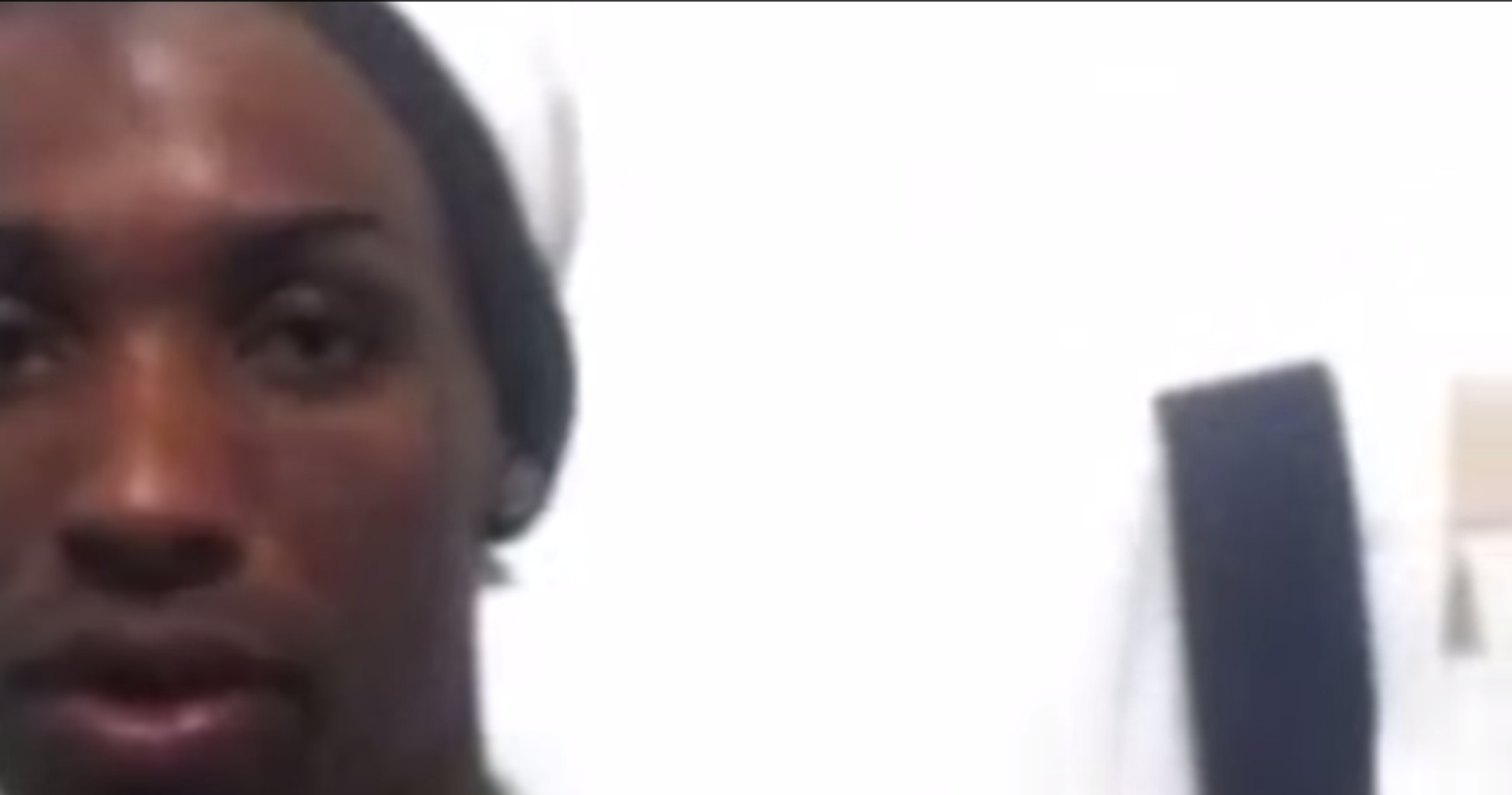NCTE Speaks to Faith Gathering about LGBT Advocacy against Incarceration and Abuse

On April 18 I was pleased to speak to attendees of the annual Ecumenical Advocacy Days during an LGBT Briefing Breakfast. This annual gathering brings faith-based activists around the country together to network, learn, and work for social justice. This year’s advocacy theme was “Breaking the Chains: Mass Incarceration & Systems of Exploitation,” and I was asked to speak about the intersection of LGBT liberation and responding to mass incarceration. I was hosted by Michael Schuenemeyer from the United Church of Christ HIV & AIDS Network and Michael Adee of the Global Faith & Justice Project. And I was privileged to speak alongside Lisa Anderson, who directs Auburn Theological Seminary’s Intersectional Engagement initiative and who spoke powerfully about the need for real human conversations and relationships among and between communities as a foundation for social change work. It was a very engaged audience, many of them seasoned activists.
I began by speaking about Ashley Diamond, a transgender woman who is challenging her egregious and repeated mistreatment in Georgia prisons with the help of the Southern Poverty Law Center. You can heard Ashley speak in her own words about her experience in a recent SPLC video:
Here’s the rest of my talk:
Ashley’s story is paradigmatic of what many LGBT people experience behind bars. Federal government surveys show that LGBT prisoners face far, far higher rates of sexual violence. LGBT advocates played a leading role in pressing for national standards under the Prison Rape Elimination Act or PREA, which now include numerous protections for LGBT people—they say, for example, that prisoners cannot be isolated solely for being LGBT, cannot be searched simply to quote-unquote determine their gender, cannot be assigned to a men’s or women’s facilities solely based on what’s between their legs. These standards, I’m afraid, have yet to be implemented in most of the country, but a growing number of advocates are hard at work to ensure they are. Last year NCTE was proud to publish Standing with LGBT Prisoners, a guide for advocates around the country working to change prison policies or considering taking on anti-incarceration work from an LGBT perspective.
Reporters ask me often: what is the biggest challenge facing LGBT people in prisons? Invariably, I say: being in prison. The fact is that incarceration generally harms individuals, and the communities they return to, more than it helps them. The most important thing we can change about prison conditions, I would submit, is having 2 million plus people in them. This year’s EAD lobbying asks—ending mandatory minimum sentencing, and abolishing the immigration detention bed quota—go directly after that problem. The fact that Ashley Diamond was sentenced to nearly a dozen years in prison in the first place should be very nearly as appalling as the things that have happened to her there.
The extreme racial disparities in incarceration are well known, and unconscionable. Truly, it is impossible to talk about incarceration in the US without talking about race. There is also reason to believe LGBT people face significantly disproportionate rates of imprisonment. As many as 20% of youth behind bars are LGBT according to some studies. Among transgender people nationally, 16% say they’ve been incarcerated at some point—a number that jumps to 25% for trans Latinos and 47% for trans African-Americans like Ms. Diamond.
With numbers like these, there can be no doubt that rolling back mass incarceration not only a salient issue for LGBT communities, but an urgent priority. As many of you know, there is now increasing, bipartisan support for making these changes. With growing cultural visibility and political strength, and an outsize stake in the issues, LGBT people have a critical role to play.
Needless to say, that work is not happening only, or primarily, here in the nation’s capital, or in the courts. Around the country LGBT activists and organizations are joining with seasoned prison reform, racial justice, and faith groups to change policies in jails, police departments, the juvenile justice system, and in city councils and state legislatures. At the local level, the PREA standards, and the recent recommendations from the President’s task force on policing—both of which speak to the need for protections for LGBT people—are among many powerful tools for starting these conversations. Whether the issue is prison conditions, sentencing, police practices, immigration enforcement, or reexamining laws that criminalize drug use or sex work, this is an incredibly fruitful time for collaboration across communities. Perhaps some of you are doing this work already. I encourage all of you to think about how you might be able to raise up and honor the voices and the needs of LGBT people and their loved ones affected by incarceration in the work you do.
I closed by noting that I’d soon be seeing my sister, who is also a lawyer—indeed, today she is in town with her clients who are challenging Kentucky’s marriage ban before the Supreme Court. I noted that that question, which has largely defined the public conversation about LGBT rights, may soon be settled. But whether the headline-writers recognize it or not, there is much, much left to do—and no better time to do it.

